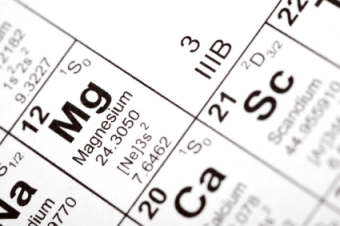Why Magnesium is Essential for a Healthy Heart
Magnesium is an essential mineral that plays a critical role in many bodily functions, including maintaining a healthy heart. The human body requires magnesium to function properly, and a lack of it can lead to various health problems, including heart disease.

Heart disease is the leading cause of death globally, and its prevalence is on the rise. According to the Centers for Disease Control and Prevention (CDC), over 600,000 people die each year in the United States due to heart disease. It is therefore important to understand how magnesium supports heart health and how you can ensure that you are getting enough of it.
Magnesium plays a crucial role in regulating the heartbeat. The heart is a muscle that relies on a complex interplay of electrical signals to function properly. Magnesium is one of the key minerals involved in this process, as it helps regulate the flow of calcium and potassium ions into and out of the heart cells, which helps to maintain a normal heart rhythm. In fact, studies have shown that magnesium supplementation can help reduce the risk of arrhythmias, or irregular heartbeats, in people with heart disease.
Another way that magnesium supports heart health is by helping to relax blood vessels. When blood vessels become constricted, the heart has to work harder to pump blood through them, which can lead to high blood pressure and an increased risk of heart disease. Magnesium helps to relax blood vessels by promoting the production of nitric oxide, a molecule that helps to dilate blood vessels and improve blood flow. This effect can help to reduce blood pressure and improve overall cardiovascular health.
In addition, magnesium has been shown to have anti-inflammatory effects. Chronic inflammation is a major risk factor for heart disease, as it can damage blood vessels and increase the risk of plaque buildup in the arteries. Magnesium has been shown to have a calming effect on the body, which can help reduce inflammation and improve overall heart health.
Finally, magnesium helps to improve insulin sensitivity. Insulin resistance is a common precursor to both diabetes and heart disease. Magnesium plays a key role in insulin metabolism, helping to regulate glucose levels in the bloodstream and improve insulin sensitivity. This effect can help to reduce the risk of both diabetes and heart disease.
It is important to note that magnesium deficiency is relatively common, particularly among older adults, people with certain health conditions, and those with poor diets. Symptoms of magnesium deficiency can include muscle weakness, fatigue, and irregular heartbeat, among others. If you suspect that you may be deficient in magnesium, it is important to speak with your healthcare provider to determine the best course of action.
So how can you ensure that you are getting enough magnesium to support your heart health? One way is to incorporate magnesium-rich foods into your diet. Some good sources of magnesium include spinach, almonds, avocado, black beans, and dark chocolate. However, it can be difficult to get enough magnesium through diet alone, particularly if you have a restrictive diet or if you have trouble absorbing nutrients. In these cases, magnesium supplements can be a helpful option.
When choosing a magnesium supplement, it is important to look for a high-quality product from a reputable manufacturer. The recommended daily allowance (RDA) for magnesium is around 320-420 mg for adults, but some people may require higher doses, particularly if they have a deficiency or a specific health condition.
In conclusion, magnesium is an essential mineral for maintaining a healthy heart. It helps regulate the heartbeat, relaxes blood vessels, reduces inflammation, and improves insulin sensitivity. By prioritizing your magnesium intake, either through diet or supplements, you can support your heart health and reduce your risk of heart disease. However, it is important to speak with your healthcare provider before starting any new supplements or making significant changes to your diet.
